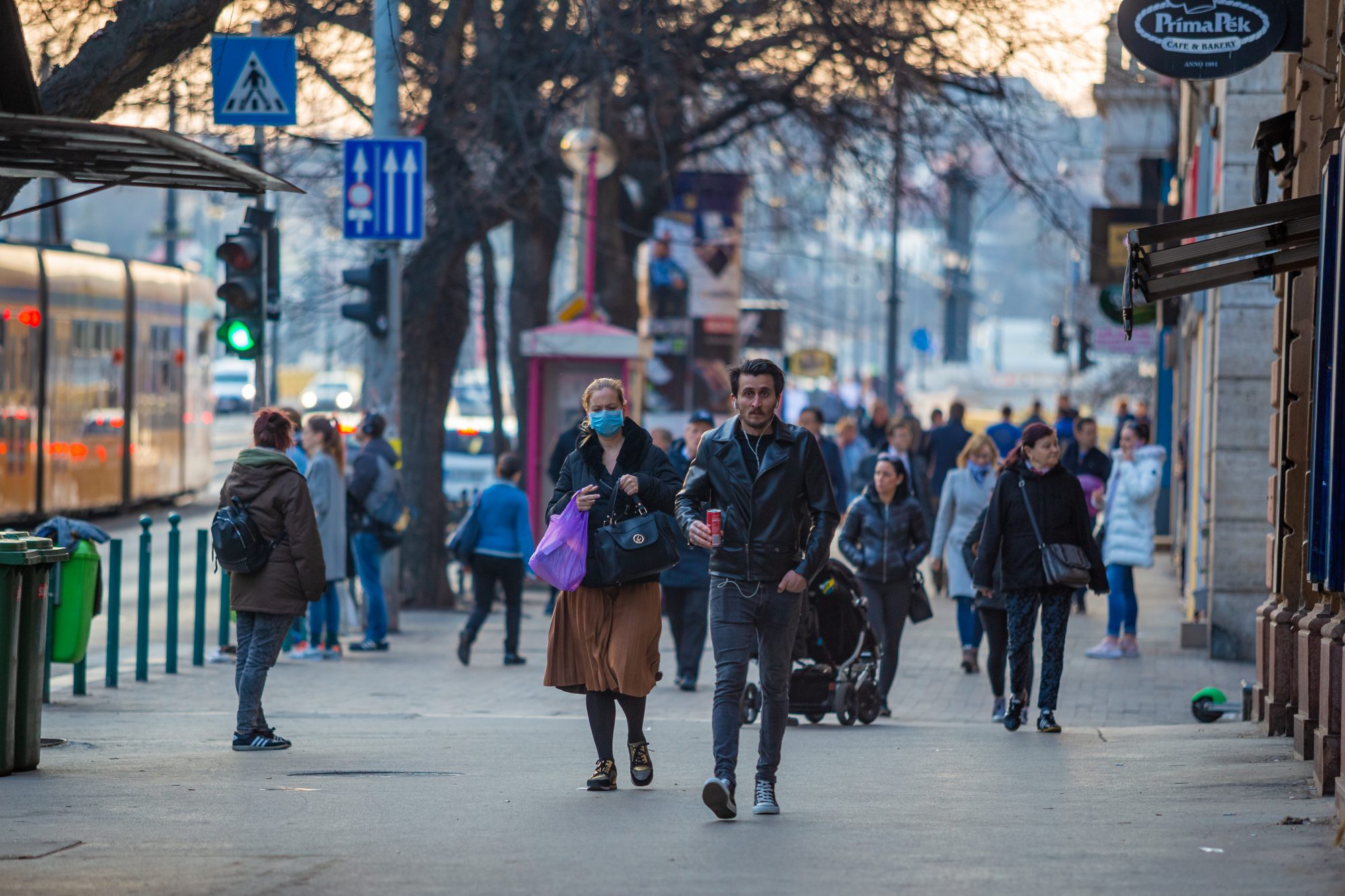Alex Godson, Strategic Communications Manager and Pietro Reviglio, Policy Officer on Governance, both from Eurocities, explore why recovery from the COVID-19 pandemic needs cities
The money is already being doled out – €24.9 billion to Italy, €231 million to Slovenia, UK null points, as European Commission President Ursula von der Leyen has made her way around European capitals in Summer and Autumn 2021. But how will the so-called National Recovery and Resilience Plans help us to ‘build back better’. Or a different question: will they?
Throughout the design process of these plans, cities were sounding the alarm bells for national governments to talk with cities. Despite this, a recent survey of 28 cities from 16 countries, conducted by the Eurocities network, contends that not only were cities insufficiently involved in the design process, but they are also being left out of the implementation phase.
Results
The funds, Europe’s plan to recover from the economic and social turmoil of the COVID-19 pandemic, aim to help countries create jobs and to design a green and digital future for all.
With these clear priorities, it is going to be down to local and regional administrations to do most of the legwork, and so it makes sense that national governments have these conversations with municipalities in their territory. Results from our survey show that many of the planned projects, such as building renovations, sustainable mobility and urban regeneration, will only benefit from greater local level involvement in their implementation.
This position has been supported at the EU level, which made local level dialogue mandatory in the design and monitoring process. Nonetheless, over 63% of respondents to Eurocities’ survey evaluated the process put in place by their government to consult cities as “insufficient” and point out that they are further being left out of the governing structures overseeing the management of covid-19 recovery.
City stories
Cities were quick to react to the crisis. From the very beginning, they responded by creating dedicated taskforces to come up with emergency response strategies. This included both short term actions, for instance, to support local businesses, as well as longer- term actions to chart a path for covid-19 recovery.
The past two years have heralded a spectacular moment for city administrations, which has allowed them to think outside the box of normal governance. Their bold approach should serve as an inspiration to all levels of government.
The city of Amsterdam, for example, has decided to adopt the ‘doughnut model’ for its post-crisis economy. The principle of this model, developed by Oxford economist Kate Raworth, is that economic activity must focus on meeting the core needs of all people, while balancing within planetary limits.
Already, Amsterdam is mapping its use of various materials and plans to half the use of new raw materials by 2030, while attaining full circularity by 2050.
Other models, such as that of the ’15 minute city’, which was popularised by Parisian Mayor Anne Hidalgo during her electoral campaign last year, are also catching on. While tourist hotspots were shut down, city centres largely abandoned at times over the past two years, and many people’s lives have felt somewhat smaller than before, city councils have been active to make sure we have access to everything we need.
Milan, for instance, is particularly focused on bringing a greater balance to all of its neighbourhoods, ensuring that essential services like healthcare facilities, should be within walking distance of people’s homes. Milan has also put a number of other actions in place, such as new bike lanes, and enabling a more flexible use of its streets to help people move around more easily and quickly.

Reality hits
While bold recovery strategies can be crucial in setting up a clear vision for our urban future, it is the way that resources are allocated that will make the final difference. This is where EU support for cities’ recovery becomes vital. Most, if not all EU cities, have pro- actively asked to be involved in the national recovery plans or for direct funding from the EU, and have put forward ideas that are ready to be developed.
However, as shared with Eurocities, this dialogue between different levels of government has not been straightforward.
For a minority of cases, such as the city of Ghent, which was in frequent formal and informal contact with the Flemish representation of local municipalities and the central Flemish and Belgian governments, the process has been quite good.
This good cooperation, however, is based on years of groundwork, starting in the early 2000s with the creation of the ‘Policy of the big cities’ that created an environment where either side was already aware of the other’s ambitions and concerns. The result is that city projects are included in Belgium’s plan, which could help create bicycle lanes and digital city halls, for example.
In other cases, particularly for some cities in Central and Eastern Europe, such as Warsaw and Prague, a different picture has emerged.
For Budapest, for example, the most important priority put forward has been climate mitigation. The city would like to enhance energy efficiency at the household level: through retrofits, renovation, insulation, heating and reconstruction projects. The city has many other plans, which would implement the ideas of the European Green Deal for 1.5C lifestyles. So far, however, none of the city’s proposals have been considered by the national government.
What’s next?
We are convinced that local-level support for the national recovery plans will help speed up their implementation by connecting the dots on different initiatives to better reflect the actions that are most needed on the ground, and that without the active involvement of cities these plans will not fulfil their potential.
Many of the challenges cities face, especially with regards to digitalisation, climate and inequalities, are similar and would benefit from a pan-European approach. In this context, there is a window of opportunity for local administrations to be better recognised and supported in this crucial role.





![Europe’s housing crisis: A fundamental social right under pressure Run-down appartment building in southeast Europe set before a moody evening sky. High dynamic range photo. Please see my related collections... [url=search/lightbox/7431206][img]http://i161.photobucket.com/albums/t218/dave9296/Lightbox_Vetta.jpg[/img][/url]](https://www.openaccessgovernment.org/wp-content/uploads/2025/04/iStock-108309610-218x150.jpg)





